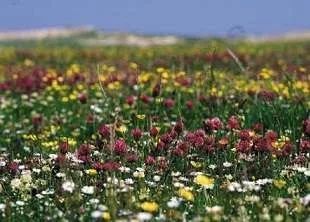Understand the nature and principles of plant ecology and apply that understanding to the cultivation and conservation of plants.
Course Aims:
- Define the term ecosystem
- Explain the importance of plants as energy producers within ecosystems
- Explain basic ecological principles
- Define the terms open and closed plant communities, semi-natural vegetation, dominant species, climax association.
- Describe the effects of plant association and competition on the succession of plants
- Describe how plant communities respond to environmental stresses.
- Explain how the development, structure and function of an organism depends on the interaction of that organism with its environment
- Describe the effects of a range of abiotic environmental factors on plant growth and development
- Explain the importance of monitoring abiotic environmental factors
- Describe plant modifications to withstand extreme environmental conditions
- Describe the weather and climate in a particular region.
- Relate plant distribution, growth and natural selection to soil, geography, weather and climate. State how soil, geography, weather and climate affect the horticulturist’s selection of plants for any specific growing location.
- Evaluate the use of meteorological records in relation to plant growth and development
- Define the terms xerophyte, hydrophyte and halophyte
- Describe the structure and function of xerophytes, hydrophytes and halophytes
- Describe how xerophytes, hydrophytes and halophytes can be utilised in garden or landscape situations
- Describe the significance of xeromorphy in temperate zone plants and its importance in the garden or landscape situation.
- Evaluate the methods by which environmental conditions can be manipulated to improve the growth and development of plants
- State the factors affecting the choice of plants for garden or landscape sites with extreme conditions
- Assess the value of using protective structures to grow plants
- Describe the sources and nature of pollutants and possible effects on plants
- Describe how the environment may be affected by a range of horticultural practices
- Explain how planning, environmental assessment and impact analysis may contribute to the conservation process
- State the major sources of grant aide available to support environmental conservation on horticultural sites
- Review the role of national and international organisations in the conservation of plants and gardens.
There are 8 Lessons in this course:
1. Introductory Ecology
2. Plant Communities
3. Plants and their Environment
4. Plants, Soils and Climate
5. Plant Adaptations to Extreme Environments
6. Manipulating Plant Environments
7. Environmental Conservation
8. Environmental Organisations, Assessment and Funding

